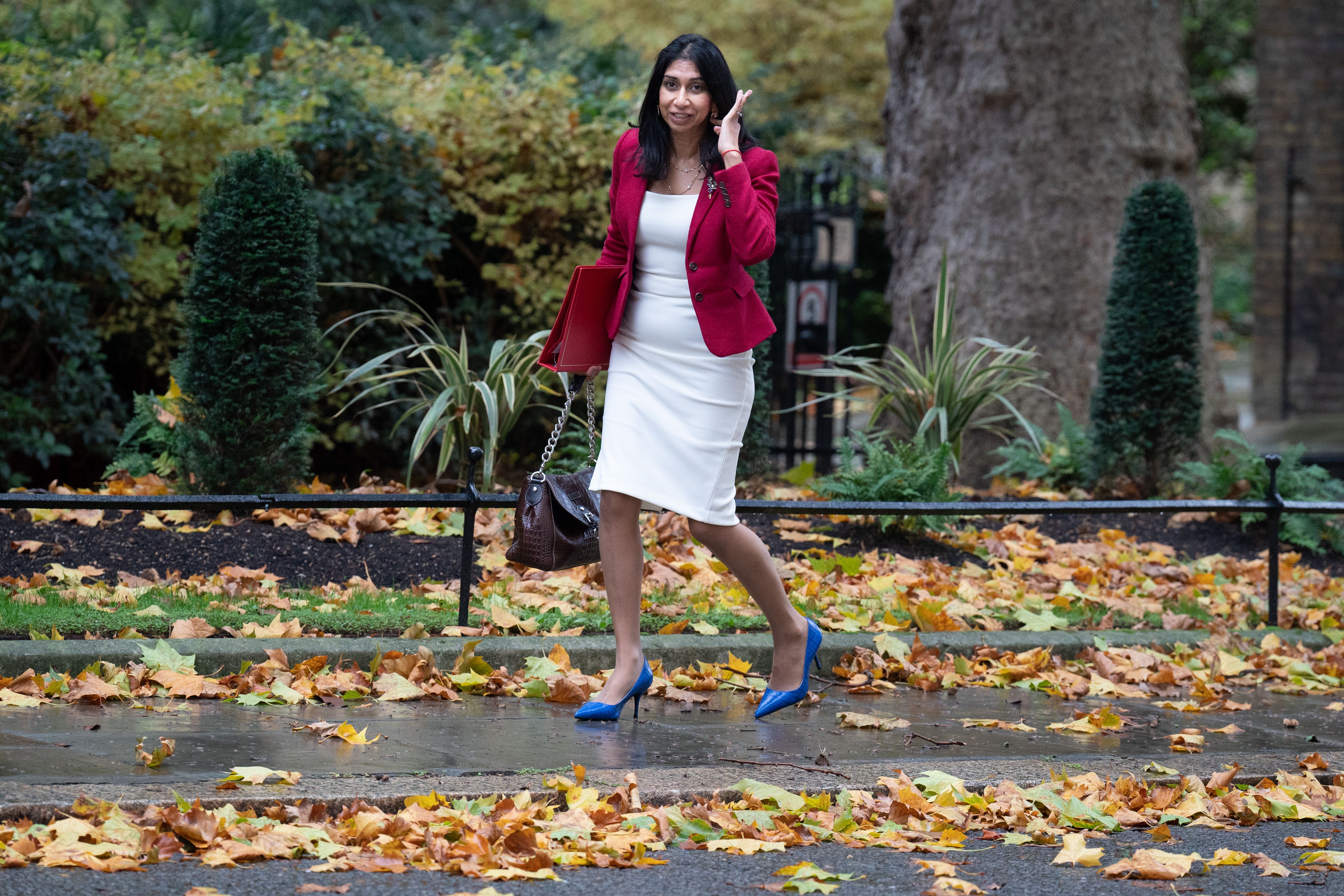Home Secretary pledges to speed up asylum system with rollout of new processes
A trial in Leeds reportedly doubled the average number of claims processed and reduced the time asylum seekers wait for a first interview by 40%.

Your support helps us to tell the story
From reproductive rights to climate change to Big Tech, The Independent is on the ground when the story is developing. Whether it's investigating the financials of Elon Musk's pro-Trump PAC or producing our latest documentary, 'The A Word', which shines a light on the American women fighting for reproductive rights, we know how important it is to parse out the facts from the messaging.
At such a critical moment in US history, we need reporters on the ground. Your donation allows us to keep sending journalists to speak to both sides of the story.
The Independent is trusted by Americans across the entire political spectrum. And unlike many other quality news outlets, we choose not to lock Americans out of our reporting and analysis with paywalls. We believe quality journalism should be available to everyone, paid for by those who can afford it.
Your support makes all the difference.Home Secretary Suella Braverman has pledged to speed up the asylum system with the nationwide rollout of a pilot scheme to streamline the application process.
The eight-week trial in Leeds doubled the average number of claims processed and reduced the time asylum seekers wait for a first interview by 40%, according to the Home Office.
Ms Braverman said the scheme will be extended to deal with 100,000 people awaiting a decision across the UK.
There is no one silver bullet but we are redoubling our efforts on multiple fronts to tackle this unacceptable situation
She said: “It is not right that the British people are picking up a £2 billion bill every year because the asylum system has been broken by an unprecedented wave of illegal migration.
“We still have a long way to go but these steps show our commitment to tackling the asylum backlog.
“Processing claims more quickly will help remove those who illegally come here from safe countries, while also ensuring those in genuine need receive our protection.
“There is no one silver bullet but we are redoubling our efforts on multiple fronts to tackle this unacceptable situation.”
The Home Office said it has also responded to the crisis by increasing the number of caseworkers by 80%, from 597 to more than 1,000, with a further 500 staff to be taken on by March 2023.
It said it has improved staff turnover by 30% by introducing a retention allowance and has streamlined process through digitisation set to be operational UK-wide by May 2023.
Ms Braverman’s announcement comes as Cabinet Office minister Oliver Dowden said Prime Minister Rishi Sunak is “totally committed” to dealing with the issue of migrants crossing the Channel.
Mr Dowden told the BBC’s Sunday With Laura Kuenssberg programme there is no easy “panacea” but voters are entitled to expect ministers to “grip” the problem.
He said: “This is a totally deplorable situation. It is dangerous for the people concerned. It enriches (people trafficking) gangs. That is exactly why the Prime Minister is totally committed to gripping this.”
Deputy Prime Minister and Justice Secretary Dominic Raab said Mr Sunak is set to revive the British Bill of Rights as part of his Government’s strategy to deal with the small boats crisis.
He said the legislation – giving the UK courts supremacy over the European Court of Human Rights – will return to Parliament “in the coming weeks”.
When it was introduced under then-premier Boris Johnson, ministers said it would prevent judges in the Strasbourg court from interfering in the Government’s controversial policy to deport asylum seekers to Rwanda to have their claims processed.
However, the Bill was shelved by Liz Truss when she became prime minister in September after Government sources warned it was “unlikely to progress in its current form”.
Nevertheless, the Bill of Rights is unlikely to provide a quick fix as it is also highly controversial and the Government is likely to face a tough battle – particularly in the House of Lords – to get it on to the statute book.
In a statement, Mr Raab said: “It builds on the UK’s proud tradition of liberty by strengthening freedom of speech, reinjecting a healthy dose of common sense to the system and ending abuse of our laws.”